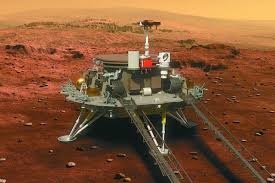
Breaking News
 Mike Adams Fitness Update with Therapeutic PEPTIDES that Help HEAL Old Injuries
Mike Adams Fitness Update with Therapeutic PEPTIDES that Help HEAL Old Injuries
 56 Survival Uses for Heavy-Duty Garbage Bags
56 Survival Uses for Heavy-Duty Garbage Bags
 Zorro Ranch is MUCH worse than Epstein Island, the truth is coming out
Zorro Ranch is MUCH worse than Epstein Island, the truth is coming out
 We're Being DEHUMANIZED By This...
We're Being DEHUMANIZED By This...
Top Tech News
 New Spray-on Powder Instantly Seals Life-Threatening Wounds in Battle or During Disasters
New Spray-on Powder Instantly Seals Life-Threatening Wounds in Battle or During Disasters
 AI-enhanced stethoscope excels at listening to our hearts
AI-enhanced stethoscope excels at listening to our hearts
 Flame-treated sunscreen keeps the zinc but cuts the smeary white look
Flame-treated sunscreen keeps the zinc but cuts the smeary white look
 Display hub adds three more screens powered through single USB port
Display hub adds three more screens powered through single USB port
 We Finally Know How Fast The Tesla Semi Will Charge: Very, Very Fast
We Finally Know How Fast The Tesla Semi Will Charge: Very, Very Fast
 Drone-launching underwater drone hitches a ride on ship and sub hulls
Drone-launching underwater drone hitches a ride on ship and sub hulls
 Humanoid Robots Get "Brains" As Dual-Use Fears Mount
Humanoid Robots Get "Brains" As Dual-Use Fears Mount
 SpaceX Authorized to Increase High Speed Internet Download Speeds 5X Through 2026
SpaceX Authorized to Increase High Speed Internet Download Speeds 5X Through 2026
 Space AI is the Key to the Technological Singularity
Space AI is the Key to the Technological Singularity
 Velocitor X-1 eVTOL could be beating the traffic in just a year
Velocitor X-1 eVTOL could be beating the traffic in just a year
China Lands Mars Rover After "Nine Minutes Of Terror"

Late Friday night (or early Saturday morning in China), AP News confirmed that the rover, called Zhu Rong, successfully landed on the Red Planet via state media. "The scientific research team confirmed via the telemetry signal sent by the Zhu Rong Mars rover that on May 15, the Tianwen-1 Lander successfully landed in the pre-selected landing area in the Utopia Plain of southern Mars," CNSA said.
Landing on the Red Planet is dangerous - CNSA said it was "nine minutes of terror" as the lander descended toward the planet's surface at a high rate of speed, and the thin atmosphere didn't have enough friction to slow the descent.
Only NASA has reached the surface of Mars intact on multiple occasions. According to the diagram above, the lander relied on parachutes and rocket engines to slow the descent. This method is similar to NASA's, who has landed Curiosity and Perseverance rovers on Mars.
Global Times reported the spacecraft reduced its altitude from its typical orbital trajectory and began the descent around 1600 ET Friday (or about 0400 local time in China Saturday).
Chinese President Xi Jinping praised CNSA and said the mission was an essential step in China's space exploration.
An uncrewed Chinese spacecraft landed on Mars, making China the second nation after the U.S. to reach the planet https://t.co/K7IJGykKj5 pic.twitter.com/kI1E04f46p
— Reuters (@Reuters) May 15, 2021



